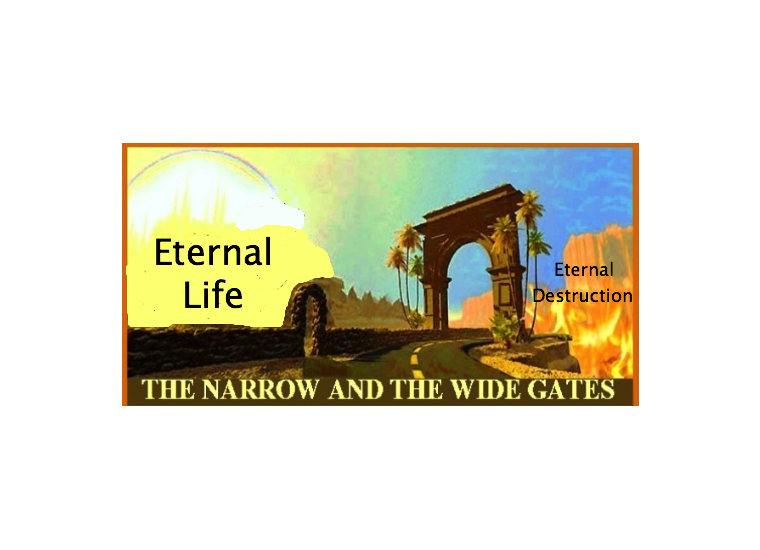“The grace of our Lord Jesus Christ be with you all. Amen.” Revelation 22:21
Pastor and author J. Vernon McGee observed that the Old Testament concluded with a curse (Malachi 4:4-6), but the New Testament ends with an extension of God’s grace to “all” who read the book of Revelation (Revelation 22:21). 1 This blessing of grace is in high demand today in a world that is spiraling downward into the darkness of sin and shame.
People desperately need to hear this message of grace today. As the brokenness of the world dips deeper into the degradation of sin, the need for God’s grace to rescue and restore people has increased exponentially. However, many people do not know about God’s grace because churches are not clearly communicating it to them. Instead of hearing that God offers eternal life and complete forgiveness freely to those who believe in Christ, people are being told they must clean up their lives first or turn from their sin before they can become eligible for this grace. Or they may hear about God’s grace from the pulpit on Sunday mornings, but they do not experience that grace in their relationships with those who espouse it.
The apostle John has written twenty-two chapters of Revelation given to him by the ascended and glorified Lord Jesus Christ through His angel (1:1). This may come as a surprise to many of us, but I will risk saying it any way: Christ entrusted John with this disclosure of future events so people who read this book may experience God’s grace. This may seem strange to us when we consider the many dire predictions of judgment recorded in the book of Revelation, but the Lord wants His grace to have the last word! 2
The final verse of the Bible says, “The grace of our Lord Jesus Christ be with you all. Amen.” (Revelation 22:21). The Greek word translated “grace” (charis) in this context refers to “Christ, who gives undeserved gifts to people.” 3 Grace means getting what we do not deserve. We do not deserve eternal life nor forgiveness from God. We do not deserve to be rescued from the coming wrath of God during the Tribulation period (Revelation 6:1-19:21) nor from the eternal wrath of God in the lake of fire (Revelation 20:11-15). Yet “our Lord Jesus Christ” offers it “freely” to anyone who believes in Him (22:17; cf. John 3:15-18, 36; 4:10-14; 5:24; 6:35-40, 47; 7:37-39; 11:25-26; 20:31; Romans 3:23-4:5; 6:23b; 11:6; Galatians 2:16; Ephesians 1:13-14; 2:8-9; I Thessalonians 1:9-10; 4:13-5:11; I Timothy 1:16; I John 5:1, 13; Revelation 21:6; et al.).
This “grace” can only be found in “our Lord Jesus Christ.” You cannot obtain this “grace” from your church, your parents, your peers, your pastor, your priest, your imam, your religion, or your own performance. This grace can only be found in the Person of Jesus Christ. The apostle John tells us in his gospel, “And the Word became flesh and dwelt among us, and we beheld His glory, the glory as of the only begotten of the Father, full of grace and truth.” (John 1:14). The “glory” that John and the other apostles “beheld” in Christ was “full of grace and truth.”
Christ was full of grace and truth. He has the perfect ability to tell us the awful truth about ourselves, while holding us up by His grace. Because He is full of truth, He was the perfect sacrifice to pay the penalty for our sin (2 Corinthians 5:21; I Peter 3:18). Because He is full of grace, you can come to Him just as you are, without having to clean up your life first. And because He is full of truth, you can come in complete confidence knowing that He will keep His promise to forgive you and grant you eternal life the moment you believe in Him. Jesus promised, “He who believes in Me has everlasting life” (John 6:47).
Please notice, however, that John does not mention Jesus’ truth at the end of Revelation. Instead, He focuses on “the grace of our Lord Jesus Christ.” God knew that as the world races toward the future events recorded in the book of Revelation that what “all” of us would need the most is His grace. He knew about the global pandemic and the conflict between Ukraine and Russia. He knew about the increase in political, racial, and religious tensions. He knew our society would become more sexualized and temptations would abound. He foresaw the devaluation of human life and the Satanic assault on His design for marriage and family. He understood the world would turn away from Him and spiral downward into the consequences of sin. Yet God still extends His grace to “all” of us.
For the nonbeliever, this grace invites them to come to Christ in “faith” to be forever saved from the penalty of his or her sins. The Bible says, “8 For by grace you have been saved through faith, and that not of yourselves; it is the gift of God, 9 not of works, lest anyone should boast.” (Ephesians 2:8-9). Being “saved” from hell is “by grace … through faith… not of works.” “Grace” precedes “faith.” God’s undeserved favor (grace) draws the non-Christian to place his or her faith in Christ alone. This salvation is “not of yourselves.” It is not based on your determination or dedication because it is “the gift of God.”
When you receive a Christmas or birthday gift, do you have to pay for it? No, of course not. Why? Because it is a gift. It has already been paid for so there is nothing left for you to pay. If you offered a gift to someone and they insisted on paying for it, how would you feel? If you are like me, you would probably feel hurt or offended because they are telling you that you did not finish paying for that gift.
Think about how God feels when we refuse to receive His gift of salvation on His terms (faith alone in Christ alone). God can offer salvation from hell freely because Jesus Christ paid for it all when He died in our place on the cross and rose from the dead (John 19:30; I Corinthians 15:3-6). God the Father accepted Jesus’ perfect sacrifice as the full payment for the sins of the world. Since God was forever satisfied with Jesus’ payment for all our sins (Isaiah 53:11; John 19:30; I John 2:1-2), we must also be satisfied with what satisfies God. God cannot accept anything we do as payment for our sins because He has already accepted His Son’s payment for all our sins when He died in our place on the cross.
But when people trust their works or faith plus their works to receive Christ’s gift of salvation, they are insulting God by telling Him that His Son, Jesus Christ, did not get the job done, so they must help Jesus finish paying all their sin debt back to God. God says to those who are not satisfied with what satisfied Him, “I never knew you, depart from Me you who practice lawlessness.” (Matthew 7:23). Jesus will reject those who confess Him as “Lord” while relying on their own good works (“prophesied in Your name, cast out demons in Your name, and done many wonders in Your name” (Matthew 7:21-23) because they failed to do “the will of” His “Father in heaven” (Matthew 7:21) which is to believe in Jesus alone for everlasting life (John 6:40; cf. John 3:5-16; Matthew 18:3, 6; 21:32; 27:42). God is telling us if people will not believe Jesus paid their sin debt in full, then He will let them pay their entire sin debt to Him in the lake of fire forever because they have rejected God’s terms for receiving salvation from hell (John 3:18, 36; Revelation 20:15).
This blessing of grace at the end of Revelation is also intended for Christians. God’s grace invites them to continually come to His heavenly throne in prayer to receive mercy and grace in their time of need no matter how much they have struggled with failure because Christ understands and sympathizes with them: “15 For we do not have a High Priest who cannot sympathize with our weaknesses, but was in all points tempted as we are, yet without sin. 16 Let us therefore come boldly to the throne of grace, that we may obtain mercy and find grace to help in time of need.” (Hebrews 4:15-16).
This grace also teaches believers how to persevere in godliness until Christ returns for them: “11 For the grace of God that brings salvation has appeared to all men, 12 teaching us that, denying ungodliness and worldly lusts, we should live soberly, righteously, and godly in the present age, 13 looking for the blessed hope and glorious appearing of our great God and Savior Jesus Christ, 14 who gave Himself for us, that He might redeem us from every lawless deed and purify for Himself His own special people, zealous for good works.” (Titus 2:11-14).
While the New Testament ends with God’s grace (Revelation 22:21), we also see that it begins with this same amazing grace. Starting with “the genealogy of Jesus Christ,” we see several examples of the Lord’s grace (Matthew 1:1-17). The Lord God orchestrated the coming of His Son to earth through imperfect people such as Abraham, Isaac, and Jacob who were deceivers and liars (1:1-2; cf. Genesis 12; 20; 26; 27; et al.); Tamar who posed as a prostitute to commit incest with her father-in-law Judah (1:3; cf. Genesis 38), Rahab, a prostitute (1:5a; cf. Joshua 2; 6; Hebrews 11:31); Ruth, a Gentile from Moab outside the covenant of Israel whose people worshiped idols (1:5b; cf. Ruth 1:1-4); King David who committed adultery and murder (1:6b; cf. 2 Samuel 11); Solomon who had many wives and concubines, and whose life ended as an idolator (1:7a; cf. I Kings 11); and Manasseh, one of Israel’s most wicked kings (1:10a; cf. 2 Kings 21), to name a few. Would we have chosen these people to be the ancestors of the Messiah-God? Probably not.
It is humbling to realize that God’s grace still uses imperfect sinners to bring His Son to others through the preaching of the gospel. The Lord takes unlikely people and uses them greatly to accomplish His purposes regardless of their circumstances or character. Truly, God’s grace is unlike anything we could ever create.
Although the book of Revelation speaks primarily of future events, it points believers and nonbelievers to God’s grace to help them prepare for what is coming. May His amazing “grace” be with us all!!!
Prayer: Gracious Lord Jesus, thank You for extending Your amazing grace to us during this church age prior to the outpouring of Your wrath on the earth. Your grace not only saves us from Your eternal wrath in the lake of fire the moment we believe in You, but it will also save us from Your temporal wrath during the Tribulation period through the sudden removal of Your church from the earth at any moment. As the world rapidly moves toward end-time events, we desperately need Your grace to enable us to persevere in godliness and communicate Your love to the lost with our words and actions. Please lead us by Your Spirit to those You have prepared to hear and believe the gospel so they may come to faith in You alone for eternal life and enjoy eternity with You on the new earth in the New Jerusalem. Hallelujah Lord Jesus for Your Revelation! May all honor and glory and power and dominion be Yours both now and forever! Amen.
ENDNOTES:
1. Charles Swindoll, Insights on Revelation (Swindoll’s Living Insights New Testament Commentary Book 15, Tyndale House Publishers, Inc., 2014 Kindle Edition), pg. 404 cites J. Vernon McGee, Thru the Bible with J. Vernon McGee, Vol. 5, I Corinthians – Revelation (Nashville: Thomas Nelson, 1981), 1080.
2. Tom Constable, Notes on Revelation, 2017 Edition, pg. 259 cites George Raymond Beasley-Murray, The Book of Revelation, New Century Bible Commentary series, revised ed., (London: Morgan & Scott, 1974; reprint ed., Grand Rapids: Wm. B. Eerdmans Publishing Co., and London: Marshall, Morgan & Scott, 1983), pg. 350.



